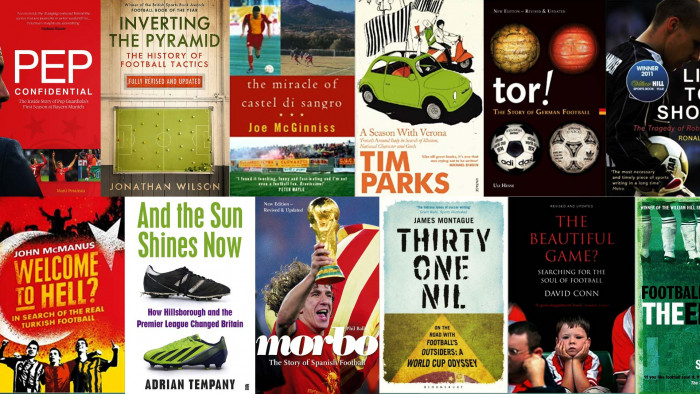As we approach the 50th anniversary of Andy Warhol’s claim that everyone will eventually be world-famous for 15 minutes, it is beginning to look like the artist overestimated things.
It is hard to begrudge anyone from wanting to capitalise on their moment in the spotlight, be it Love Island’s Chris and Kem releasing a single or Olly Murs parlaying his X Factor run into a semi-regular spot on Soccer Aid. However, the general public often react angrily to this extended fame, thinking aloud about certain individuals’ continued presence on the front pages.
Not all of those who get catapulted to fame do so from the same starting point, though.
For every ‘Cash Me Ousside’ girl there’s someone whose status as headline-grabber comes as a result of something they achieved rather than something they did. And, while the reaction from the general public might discriminate between the two, the same is not always true of the media profile that follows.
Chris Moneymaker was a 27-year-old accountant from Tennessee when he won the main event at the 2003 World Series of Poker, but within weeks he was rubbing shoulders with Hollywood A-Listers and having his pick of talk-show slots. Unlike others with such a meteoric rise, however, he has managed to keep it going.
I caught up with Moneymaker at the PokerStars Festival Dublin to look back at the moment that changed his life more than 14 years ago. And yes, that is his real name.

Chris Moneymaker shot to fame when he won the 2003 World Series of Poker
“It was definitely surreal to get those phone calls, because I figured I’d just won a tournament,” Moneymaker tells me.
“I didn’t think it was going to be that big a deal, but then I get home and I’ve got Jay Leno and David Letterman fighting over me to come on their show.
“I remember being on the golf course and my buddy just going ‘this can’t be real’. I was getting calls from their assistants saying ‘don’t go on the other show, we’re better’ and vice versa.”
Stories about green room run-ins or celebrity party interactions tend to be the kind of thing you only hear about much later, when enough time has passed since the initial incident.
Typically, this involves those who were already big names at the time of the initial interaction and remain on the A-list for years if not decades after, giving you just one side of the regular-joe-meets-huge-star dichotomy.
However, Moneymaker has an almost unique situation of having lived this all out from both sides – as the Tennessee accountant thrust into the limelight back in 2003, and now as the world champion who leaves others starstruck.
“I was on the [Letterman] show with Bruce Willis, which was really weird. He came off the stage and told me to just relax, and just have fun with it or whatever,” he recalls.
“At first [the extra attention] was really difficult. I wasn’t good at public speaking, I didn’t like getting up in front of people and doing interviews.
“So for me to get up and go on shows like David Letterman, 20/20 and other stuff, it really was difficult for me and it was petrifying to be honest.
“In the beginning it took some getting used to, but over time you learn to adapt like with anything else, and I embraced the role and had fun with it.”
Of course, while that level of attention might be nothing when compared to those with whom you rub shoulders on talk shows, you can be a big poker name and still be a small name in the grander scheme of things.
Moneymaker signed up as a PokerStars ambassador the year he won the main event, having famously qualified through a ‘satellite’ tournament on the site, turning less than $100 into $2.5 million.
He doesn’t believe the world champion has the same ambassadorial role as in his time (and admits anyone who wins upwards of $8 million – the top prize for the last few champions – is free to do what they want after their victory) but he, on a personal level, has really grown into the extra responsibilities.
“You have to enjoy what you’re doing and I’ve always enjoyed poker,” he explains.
“Someone asked me during the media tournament ‘you must hate doing this, it must be so mind-numbing for you’, but I’m like ‘no, this is great’.
“After playing the main event all night and then coming here and having some drinks and joking around with people, that’s definitely a stress reliever.”
And, while Moneymaker still sees himself as “just a dumb hick from Tennessee”, others saw him as a lot more back in the mid-2000s – including some unlikely fans.
“I remember I was at a Hollywood party and talking to some people and a guy comes up behind me, puts his hands on my shoulders and goes ‘Dude, I’m a huge fan!’ I’m just like who the hell is coming up and doing this, and it’s Leonardo DiCaprio.
“I’ve definitely had some surreal moments where I think ‘is this real life?’ - football players, pitchers, Nascar drivers who I’ve met, and I’ve got to play and hang out with some really interesting and fun people.”
He still gets plenty of attention from recreational poker players who aren’t also sportsmen or movie stars, of course, even if he jokingly resents the ‘legend’ status he has been given by some.
“It just infers that you’re really old and I don’t really like that,” he laughs. “I feel like I’m 25”.

Moneymaker continues to work as an ambassador for PokerStars
Anyone who lived through the mid-2000s will remember poker entering the public consciousness, and will be aware that it’s not really there to the same degree these days, but Moneymaker’s run was (and still is) seen as the tipping point that brought it to the fore.
When I’m on my way back to Dublin airport, my taxi driver muses on what he sees as a decline in the game. He had been picking up revellers from the players’ party the previous night and, while numbers for big tournaments such as that in Dublin (where more than 500 players ponied up the €91,808 main event entry fee) remain healthy, the regular £5 pub games we saw a decade ago have long since vanished.
That said, rumours of poker’s demise have been exaggerated – especially if you compare it to the situation before Moneymaker’s success.
“I hope the players today realise how good they have it, because when I won back in the day there wasn’t poker every week,” he stresses.
“Online poker was really small, you couldn’t just walk into a casino and get a game, you couldn’t go every single week and find a tournament - they happened once a month, if that, and were really spread out across the country and across the world.”
It turned A-listers in other fields into just another guy in the world of poker in much the same way that Moneymaker, just another guy before his victory, became a celebrity through poker.)
Ben Affleck (“he actually transferred from a really bad player to a really solid player”) and Tobey Maguire ("he was known for cleaning up the Hollywood games”) are the two who Moneymaker mentions by name, but others to take part in recent World Series of Poker tournaments include comedian Kevin Hart, actor Aaron Paul and Olympic swimmer Michael Phelps.
All three are used to posing for autographs while going about their day-to-day busines, but poker has given them a chance to fanboy over someone else for a change.
Plenty of people will read this and be hesitant about the price of fame, having seen others crash and burn after getting their own 15 minutes.
There is a line of thinking that suggests it’s better to have never experienced this level of notoriety than to get a brief taste followed by a return to normality, but Moneymaker is quick to dismiss this.
“[At the time] I said ‘I’m not going on either one of those shows, I’m not doing public speaking, I’m not doing any of that stuff’ but basically my friends said I just had to, you’re an idiot if you don’t,” he says.
“I knew I had to do it, those opportunities don’t come along very often so you take it and you run with it.”
(Images: Neil Stoddart/Rex)
Latest
Related Reviews and Shortlists










